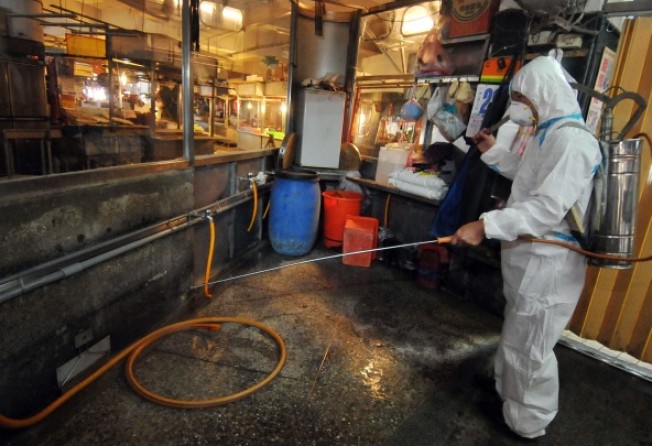Time to ban import of live poultry as H7N9 continues to spread
Albert Cheng says the government must act, given the expert warnings about the virulence of H7N9 virus, and no sign that infections are abating

One of Karl Marx's most famous quotes is that history repeats itself, first as tragedy, then as farce.
Ten years ago, Hong Kong was badly hit by severe acute respiratory syndrome because our government had a low sense of crisis and didn't know how to take preventive measures. It was oblivious to the fact that residents in Guangzhou had begun rushing to buy vinegar and Chinese medicine to fend off a mysterious form of pneumonia that was sweeping Guangdong province.
Our government ignored the warning signs and the Sars virus crossed the border and spread in our community in no time, causing hundreds of deaths. The city's economy also took a bashing and hit rock-bottom.
Today, we are faced with a similarly explosive situation. Shanghai has been hit by what researchers now say is one of the most virulent flu viruses.
More cases of H7N9 infections are surfacing almost daily: 127 people are confirmed to have been infected, resulting in 24 deaths. Among those affected, some 40 per cent appear to have had no contact with birds. This raises the possibility of the virus being transmitted between humans.
Is that now the case? A mainland infectious-disease expert stated in an overseas medical journal that if two genome sequences of the virus have shifted at the same time, the virus will become more infectious. She hasn't ruled out that human-to-human transmission has already occurred. Unfortunately, she has tried to tone down her statement due to political pressure.
Since the H7N9 virus first surfaced, the weather has become warmer. With some birds now migrating northwards, this could lead to more cases in central and northern China.
Already, cases have been found in Fujian and even in Taiwan, where the infected patient was found to have visited southern China. We can no longer dismiss the possibility of human-to-human transmission. The Taiwanese government has stepped up measures and set up an inter-departmental response group in a bid to stop the virus from spreading in the community.
The island has also raised its travel alert to nationals travelling to the mainland and will soon ban the slaughter of poultry. It has stepped up inspections at airports and immigration points.
Hong Kong's efforts pale by comparison. Even after some bird samples taken from a number of wholesale markets for live poultry in Dongguan were confirmed to have the H7 virus (though not the H7N9 one), the relevant authorities were reluctant to do much in response.
And because the Dongguan government didn't immediately cull all chickens, some stalls managed to sell off their stock beforehand, which means infected fowls may have entered the local community or been sold to Hong Kong. About a dozen wholesale markets in Dongguan supply frozen chicken and eggs to Hong Kong and Macau.
This goes to show we cannot dismiss the possibility that the virus has already entered our community.
Still, our government has yet to ban the import of live chickens. Secretary for Food and Health Dr Ko Wing-man insists on maintaining the protocol, which dictates that the source of infection must be within a 13-kilometre radius before any action can be taken.
Thus, if any supplier of live birds and eggs falls within that radius, the government would then ban the imports from that supplier.
As far as border health checks are concerned, the government hasn't moved to step up inspections.
Meanwhile, a number of local infectious-disease experts have said they believe the virus could be spreading in neighbouring Guangdong. And they have warned that due to the current golden week period, when even more mainland tourists arrive here, we could see the first case surfacing in Hong Kong shortly.
One expert, Dr Ho Pak-leung, microbiologist and associate professor at the University of Hong Kong, says the government should consider banning the sale of live chickens in wet markets. But despite the emergence of warning signs, our health minister still prefers to do nothing - except warn Hongkongers to be prepared.
Getting prepared seems to be just about staging shows in public, such as launching the so-called clean-up campaign in communities. How pathetic.
No one wants to see a repeat of Sars. No matter what reason is stopping the government from raising the alert level and stepping up preventive measures, it's wrong for the administration to put politics or diplomacy ahead of public safety.
It's painful to see that our government has failed to learn a decade-old lesson when hundreds of lives were lost.
Thankfully, Hongkongers are strong and resilient. They need to be proactive, be prepared for the worst, and help each other.
Albert Cheng King-hon is a political commentator. [email protected]